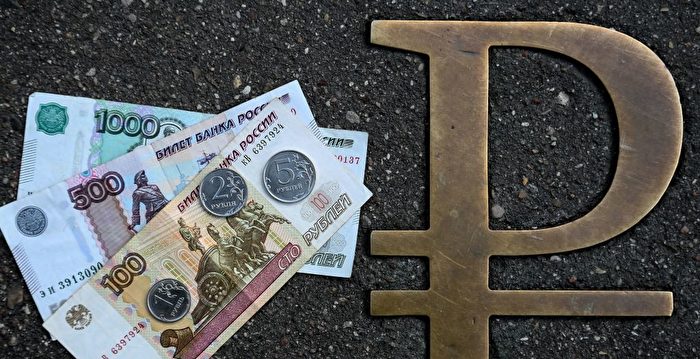[The Epoch Times, March 22, 2022](The Epoch Times reporter Zhang Yujie comprehensive report) Russian bond investors are paying close attention to the situation. Markets questioned the Russian government’s ability to meet its debt service obligations after Russia’s aggression in Ukraine triggered international sanctions.
Investors in Russian government bonds received $117 million in interest on the Russian government’s bonds last week, but with most of Russia’s central bank’s $630 billion in foreign currency reserves frozen, markets are focused on whether Russia can continue to repay its debt on time.
Russia has a total of 15 foreign bonds due to mature with a total face value of about $40 billion. Before the Ukraine crisis, $20 billion of that was held by foreign investors.
Before the end of this year, Russia has a total of 4.5 billion US dollars in principal and interest to be paid, including a 2029 US dollar bond that needs to be paid on Monday (21st), a 66 million US dollar coupon; a 4.47% payment on March 31st $2 billion in debt, which must be paid in U.S. dollars; and $2 billion in debt due on April 4, Russia’s largest debt this year.
The $66 million in debt due on Monday and the $102 million due on March 28 could be paid by Russia in currencies such as rubles instead of dollars.
On March 21, Reuters quoted Gramercy Fund Management as saying that 15 days’ notice is required if debts are paid in alternative currencies, but the Russian finance ministry has yet to issue a relevant notice.
According to a Bloomberg report on the same day, although Russia can pay its debts in rubles, due to international sanctions and capital controls in Russia, if it is paid in rubles, it is unknown whether foreign investors can use the payment.
Fitch Ratings, the international rating agency, said last week that Russia was at risk of default if it did not repay its debt in the next 30 days.
Antoine Lesne, head of ETF strategy and research at State Street, who owns some Russian government bonds, said the market is closely watching every interest payment and bond redemption trade in Russia in this case.
According to JP Morgan, before the Ukraine crisis, foreign investors also held a total of about $38 billion in Russian local currency sovereign debt (OFZs), some of which have not yet been paid.
Western economic sanctions against Russia include prohibiting investors from trading with Russia’s finance ministry, central bank or state wealth fund.
The U.S. Office of Foreign Assets Control (OFAC) on March 2 temporarily authorized investors to receive interest and bond payments from the aforementioned Russian unit. But the deadline for this authorization is May 25, after which Russia has about $2 billion of foreign sovereign debt due until the end of 2022.
The first payment after the OFAC authorization deadline was May 27, a key date that JPMorgan analysts said.
Reuters quoted an analysis as saying that if Russia fails to pay due bonds within the grace period, or fails to pay specific dollar or euro bonds in rubles, there will be a historic default.
In the event of a default, Russia will not be able to participate in the international lending market until the loss of investors is repaid. Russia’s credit rating will also be downgraded for a period of time, raising borrowing rates for the Russian government and large corporations.
Responsible editor: Ye Ziwei#
